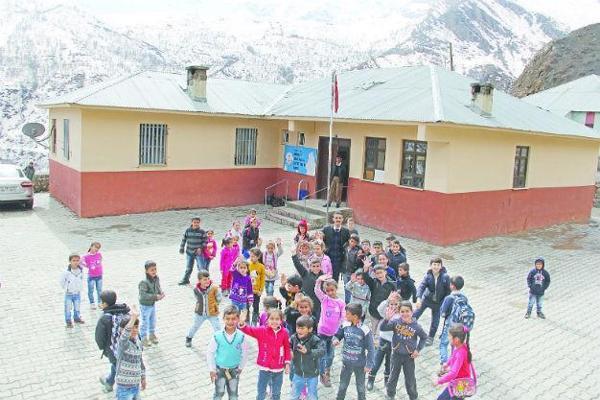Turkey ranks bottom on child inequality: UNICEF report
ISTANBUL


AA photo
Turkey ranks bottom out of 41 countries for child inequality in health and life satisfaction, according to a recent study by the United Nations Children Fund (UNICEF) measuring disparities between middle and low-income children.In its report titled “Fairness for Children: A league table of inequality in child well-being in rich countries,” UNICEF measured how far the gap has widened between the “average” children and those with lowest household income levels, rather than focusing on the gap between the richest and the poorest. For the report, data from 41 countries of the EU and the Organization for Economic Cooperation and Development (OECD) were studied across four dimensions: Income, education, health and life satisfaction.
The most drastic negative results for Turkey were noted in health and life satisfaction, where in both cases the country was listed in the bottom two of all compared nations.
The largest relative health gaps, designated by comparing a child with frequent reporting of health symptoms and an “average” child at the median of the health scale, was found in Israel, with 38.9 percent, and Turkey, with 34.5 percent. However, Turkey performed worse than Israel in the frequency of health complaints from children at the bottom end, as some 53.3 percent of disadvantaged children reported one or more health symptoms a day. UNICEF also noted this pattern, remarking that “only Turkey shows both high bottom-end inequality and high frequency of reported health complaints.”
The country also ranked at the very bottom in terms of life satisfaction, where the relative gap between an average child and a disadvantaged child stood at 36 percent. Accordingly, the life satisfaction score of a child at the bottom is 36 percent lower than the average child.
Moreover, some 15.3 percent of Turkish children rate their life satisfaction below 4 on a scale of 0 (“worst possible life”) to 10 (“best possible life”). The figure is noteworthy as the second worst performer, Poland, only sees 10 percent of children report such high degree of dissatisfaction.
Income inequalities were also measured by comparing the household income of the median child and the household income of the child at the 10th percentile, who is poorer than 90 percent of children. The gap between the two was the indicator of income inequality between the average child and poorest children.
The data shows that 22.8 percent of Turkish children are members of households with incomes below 50 percent of the national median income, the highest ratio after Israel and Chile.
UNICEF noted that Turkey’s performance, along with that of Israel, was the worst among the 41 states studied.
“Israel and Turkey rank lowest in the overall league table. They have comparatively high bottom-end inequality in each of the four domains of child well-being for which they have valid data,” it said, arguing that social inequalities among children are unjustifiable as “merit cannot reasonably be advanced as justification for inequalities.”
